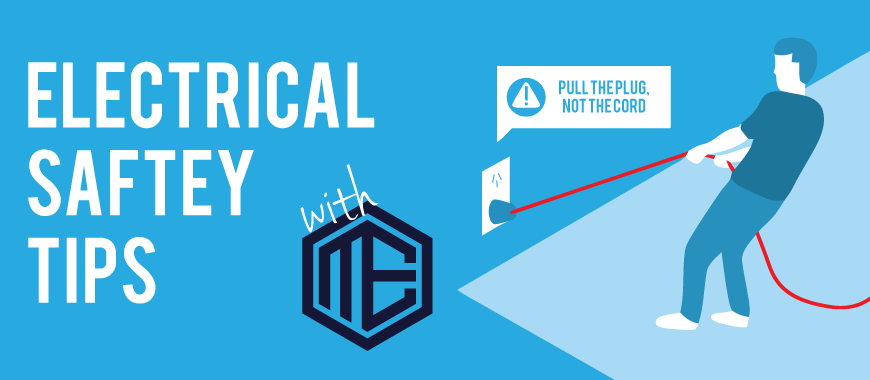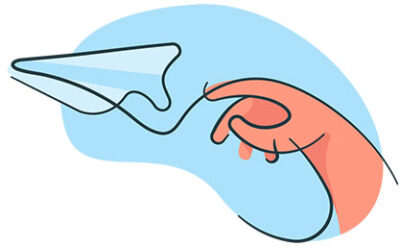Electrical Safety Tips
-
There are a number of situations arising from the use of electricity in our everyday lives that could be classified as emergencies.
In emergency situations where lives are in danger, call 000.
In the case of minor emergencies, contact Mall Electric to arrange for a licensed electrician to visit.
In instances where powerlines fall to the ground, call the local electricity distribution company – and in some cases the police on 000.
-
Power failures or blackouts have various cause. Storms are the most common cause, where strong winds can cause trees to fall across power lines interrupting the supply of power, or where vehicles collide with power poles.
Be prepared:
- Have a torch and battery-operated radio located in an easy to access area of your home
In the event of a power failure:
- Turn off all heating and cooling appliances (e.g. stove, hot plate, iron, heaters, airconditioners etc)
- Turn off and unplug your television, DVD player, computer and any other electrical equipment
- Do not use candles as they may be knocked over and start a fire
- Contact your local electricity distributor to let them know your power is out:
– Citipower 13 12 80
– Powercor 13 24 12
– SP AusNet 13 17 99
– Jemena 13 16 26
– United Energy 13 20 99For more information, refer to the Your guide to power outages brochure.
-
Power outages can occur at anytime. To prepare, have an energy plan and kit, which includes:
- Important contacts – create a list of your important contacts including close neighbours, relatives and emergency services. Keep these numbers somewhere safe and easy to find in case of a power outage
- Access to a phone, such as a charged mobile phone that doesn’t rely on electricity to operate
- Alternative lighting, such a torch. Avoid the use of candles as they are a serious fire hazard
- Alternative cooking facilities and heating – many gas appliances require electricity to operate them. Always ensure gas connections on portable appliances are maintained and in good working order
- A battery-powered radio – stay tuned to news services to hear updates on weather conditions and power outages
- Access to fresh water – if you use electricity to run a water pump, make sure you have an alternative source for fresh water or a non-electric pump available
- Consider your need for a back-up power supply if you are highly reliant on electricity. You may wish to arrange for alternative accommodation in case you need to leave you home – make sure you have your important contact numbers handy, including close neighbours, relatives and emergency services.
-
If you require an uninterrupted supply of power (UPS) because you:
- are on life support
- have a medical condition that requires continuous power supply, or
- have any other special needs
Report your needs to your electricity retailer (the company you pay for your electricity) so they can contact you in the event of an outage. Make sure they have your up-to-date telephone numbers and contact details.
For more information on power outages, visit the Department of State Development, Business and Innovation website.
-
Often electric shocks do not immediately kill the person affected. They may stop the heart, cause burns, force muscles to contract and paralyse breathing. Often shock victims cannot let go of the appliance that is passing the current to the body.
If you witness an electric shock, do the following:
- If possible, and if there is no danger of you also being electrocuted, switch off the power and pull out the plug
- If you cannot turn off the current, use heavy duty insulating gloves or something made of rubber, dry cloth or cured dry wood to free the shock victim
- Protect yourself and any bystanders from the possibility of further shocks
- Do not touch the shock victim’s skin until the current is turned off
- Seek immediate medical assistance for the victim
- If you are trained in resuscitation techniques, attempt to resuscitate the victim and provide first aid as soon as they are no longer in contact with the electrical current
- Never attempt to rescue a person where a high voltage electrical current is involved
-
Fatalities and serious injuries resulting from electric shocks can often be avoided if safety switches are installed in homes and properties.
It is easy to forget that everyday household appliances can cause us harm. Faulty wiring, faulty appliances or accidents with electricity can be fatal.
When you get an electric shock, electricity usually flows through your body to earth. It can flow through your heart, interfering with the electric impulses that keep it beating, causing the heart to stop.
How can you monitor an electrical current you cannot see, or watch every member of your family with every appliance in the house?
A safety switch monitors the flow of electricity through a circuit. It detects a problem as soon as the current leaves the circuit, and turns the power off within 0.03 of a second.
That’s quick enough to save your life, and help prevent costly fires or damage to your property.
-
If your home is more than 25 years old and you are concerned about the condition of the electrical wiring, arrange for it to be inspected by Mall Electric.
Mall Electric will use the latest technology to conduct a thorough assessment of the condition of the electrical installation in your home, and provide a report listing any defects that need attention. Any remedial work can be carried out by us.
-
Fire blankets and extinguishers can be used to put out small fires but always call 000 in the case of an emergency.
- If the fire is small, use a fire blanket to smother it or an extinguisher
- If cooking oil catches fire, put the lid on the pan or use a fire blanket to smother the fire, then turn off the burner. Do not attempt to carry the pan outside
- Never throw water on burning oil as it will spread the fire and can splash back causing burns
- Never throw water on an electrical fire as you could be electrocuted
- Turn off or unplug electrical appliances if they catch on fire – as soon as it is safe to do so
- In house fires remember to crawl low to the floor and toward the nearest exit. If you need to smash a window to get out, protect your hand with a doona or blanket
- If your clothing catches fire “Stop, Drop and Roll”. Keep rolling until all flames are extinguished
- Ensure that your garden hoses reach all areas of your home and yard in the event of a fire
- Plan and practice a home escape plan to ensure that all occupants, including children and the elderly, know what to do in the event of a fire.
-
Trees contacting powerlines can pose a significant threat to people and become an emergency unless extreme care is taken – particularly when cleaning up fallen trees near powerlines following storms or other circumstances.
In extreme situations people could be electrocuted or very seriously injured if they touch a tree branch that is in contact with a powerline.
If powerlines fall to the ground due to storms or other circumstances they will continue to be live until properly dealt with by the local electricity company.
People must stay away from fallen powerlines.
Our governing body, Energy Safe Victoria advises that the following safety precautions must be followed when powerlines fall to the ground:
- Treat fallen powerlines as ‘live’ and therefore dangerous
- Immediately notify the local distribution company of broken or damaged powerlines
- On roads and public places, the police should also be alerted
- Stay clear of all fallen tree limbs and powerlines, as well as anything they are touching such as water puddles, vehicles, metal fences and other objects that can conduct electricity
- Keep other people away from fallen powerlines
- Be alert to the possibility that tree limbs or debris may hide an electrical hazard
- Watch for dangling powerlines


